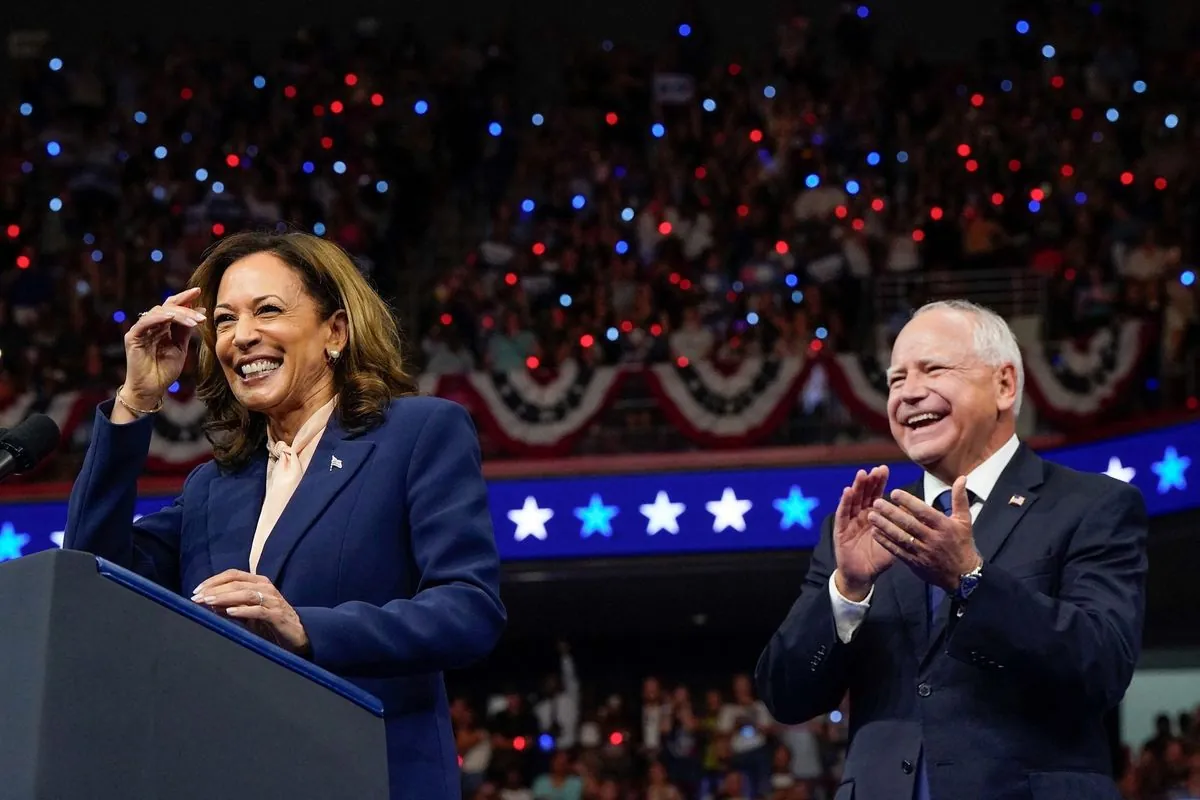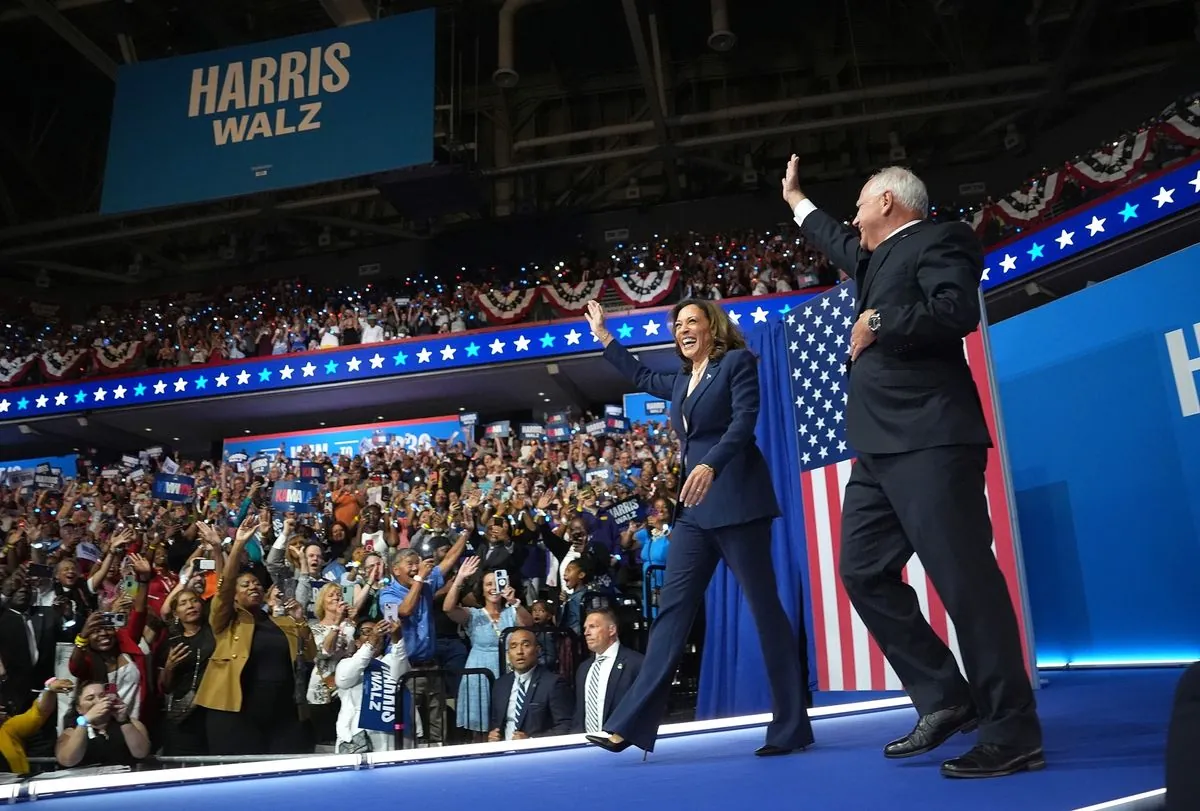Harris-Walz and Trump-Vance Campaigns Diverge in Strategy and Appeal
The Harris-Walz ticket draws large, enthusiastic crowds in battleground states, while the Trump-Vance campaign focuses on appealing to young men. Contrasting strategies highlight differences in campaign approaches and public reception.

The 2024 presidential campaign has revealed stark contrasts between the Harris-Walz and Trump-Vance tickets. While Vice President Kamala Harris and Minnesota Governor Tim Walz have been drawing large, energetic crowds across battleground states, former President Donald Trump and Senator JD Vance have focused their efforts on appealing to a specific demographic of young men.
Harris and Walz have been conducting a high-energy campaign, attracting substantial crowds in seven key states. At a recent event in Philadelphia, attendees began lining up 12 hours before the scheduled start time, despite challenging weather conditions. The enthusiasm was palpable, with noise levels reaching 107 decibels when Harris and Walz took the stage - comparable to a rock concert.

In contrast, the Trump-Vance campaign has adopted a different approach, targeting what is known as the "manosphere" - an online community of right-wing men. Trump participated in a lengthy interview with a controversial live-streamer, discussing topics such as Ultimate Fighting Championship and expressing admiration for certain far-right influencers. Vance, meanwhile, has been struggling to draw large crowds, with his events typically attracting only dozens or a few hundred attendees.
The divergent strategies have led to notable differences in public perception. Recent polls indicate that Trump's favorability among women, particularly college-educated women, remains low. Only 39% of women and 27% of college-educated women view Trump favorably, according to a recent NPR-PBS-Marist poll.
The Harris-Walz campaign has been capitalizing on this enthusiasm gap. At the Philadelphia event, supporters displayed a range of merchandise and signs, including "Yes We Kam" and "Swifties for Harris." The energy was reminiscent of Barack Obama's 2008 campaign, with attendees dancing, chanting, and singing along to music before the main speakers took the stage.
John Fetterman, Senator from Pennsylvania, addressed the crowd, taking a jab at Vance: "I work with JD Vance, and I'm here to confirm that he is a seriously weird dude." This sentiment was echoed by the crowd, who spontaneously chanted "He's a weirdo!" in response.
In contrast, Trump's recent speech in Atlanta on August 3, 2024, was characterized by self-praise, random attacks, and controversial statements. He used the word "I" 317 times in his 91-minute address, compared to Harris's 39 self-references in her 31-minute speech in Philadelphia.
"Trump is right about everything. ... They were saying how great I was. ... They said, 'He was the greatest president we ever had.'"
The Trump campaign appears to be banking on appealing to angry young men to secure victory. They've launched a $20 million "Send the Vote" initiative aimed at this demographic, which represents about 5% of the electorate. However, this strategy risks further alienating women voters, who make up a significant portion of the electorate.
As the campaign progresses, the contrasting approaches of the Harris-Walz and Trump-Vance tickets continue to shape the political landscape. While Harris and Walz focus on broad appeal and energizing large crowds, Trump and Vance's narrow focus on the "manosphere" may prove to be a risky strategy in the long run.


































